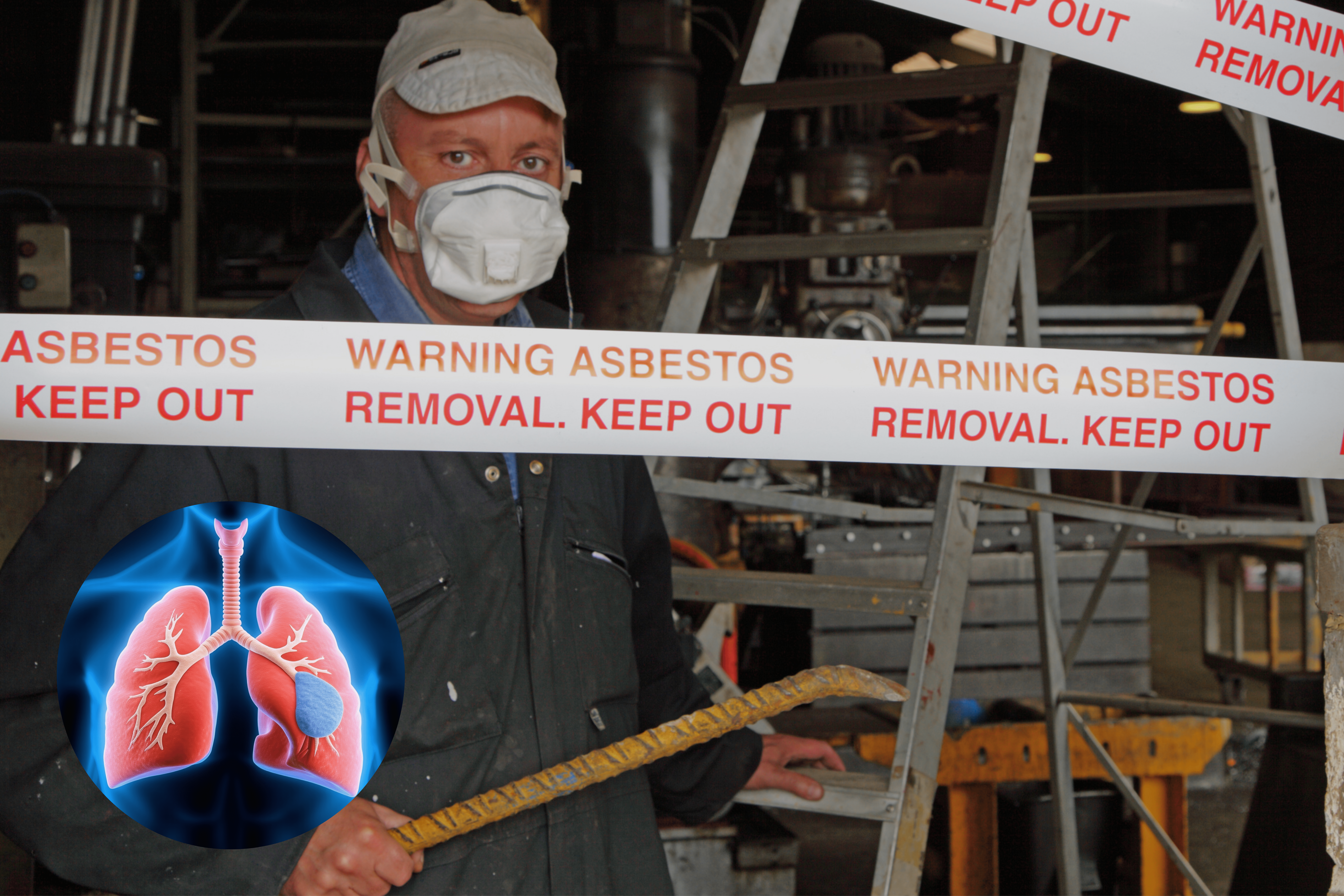
ALERT!
Could You or a loved one Be at High Risk for Asbestos-Related Diseases?
Start your path towards compensation
ALERT!
Could You or a loved one Be at High Risk for Asbestos-Related Diseases?
Start your path towards compensation now

WHAT YOU NEED TO KNOW
Asbestos exposure is a significant risk factor for developing serious diseases such as lung cancer and mesothelioma. Individuals who worked in certain industries or roles may not realize they were exposed to asbestos, which often takes decades to manifest as a health issue. If you or someone you know fits into any of the following categories, it may be time to explore your legal options. Get started today by receiving a no-obligation case evaluation.

HIGH RISK OF EXPOSURE
IT'S IMPORTANT TO ACT NOW!
Identifying potential asbestos exposure early can be critical in accessing appropriate legal and medical resources. By recognizing these risks and evaluating your work history and health symptoms, you can take the first step toward filing a claim for compensation that could cover medical expenses, lost wages, and other related costs.
Unsure if you qualify?
Contact us today for a free consultation to discuss your potential claim.
UNDERSTANDING YOUR RISK OF ASBESTOS RELATED LUNG CANCER

SYMPTOMS TO WATCH FOR:
Coughing
Chest Pain
Difficulty Breathing
Wheezing
Unexplained Weight Loss
Early detection can significantly influence treatment options and outcomes.
MESOTHELIOMA
Mesothelioma is a severe and rare cancer primarily caused by asbestos exposure, affecting the lining surrounding organs like the lungs and abdomen. It is distinct because it can develop decades after exposure, making it vital for anyone with a history of asbestos contact to be vigilant about their health.
Understanding mesothelioma and its links to asbestos exposure is essential for seeking justice and compensation that can help manage health care needs and provide financial security.
WE ARE COMMITTED TO
YOUR RECOVERY
Our mission at TrueHelp Legal Network is to provide seamless access to a vast network of legal professionals committed to supporting victims of defective products and corporate negligence. We aim to facilitate the recovery process by guiding our clients every step of the way towards obtaining the compensation they rightfully deserve.
SUCCESS STORIES
FREQUENTLY ASKED QUESTIONS
What qualifies someone to file an asbestos-related claim?
If you or a loved one has been diagnosed with lung cancer or mesothelioma and have a history of asbestos exposure, you may qualify to file a claim. This is particularly relevant if the exposure occurred in industrial settings or through products containing asbestos before stringent regulations were implemented in the 1980s.
How long do I have to file a claim after diagnosis?
The time limit, or statute of limitations, for filing an asbestos-related claim varies by state but typically ranges from one to three years from the date of diagnosis. It’s crucial to consult with a legal expert as soon as possible after a diagnosis to ensure that your claim is filed within the legal timeframe.
Are family members eligible to file a claim if the victim has passed away?
Yes, if the victim of an asbestos-related disease has passed away, their spouse, children, or other dependents may be able to file a wrongful death claim. These claims can seek compensation for medical costs incurred before death, funeral expenses, loss of income, and loss of companionship.
Ready to Take the First Step Towards Compensation?
Don't let uncertainty hold you back. Sign up for a Free Consultation with TrueHelp Legal Network today and take the first step towards understanding your legal options. Our network of experienced legal professionals specializes in asbestos-related claims and is ready to help you navigate your path to compensation.
Copyright TrueHelp Legal Network 2025













